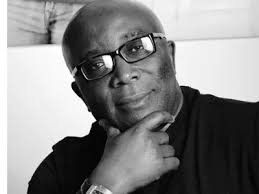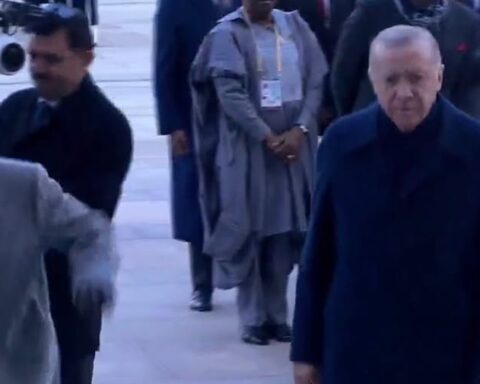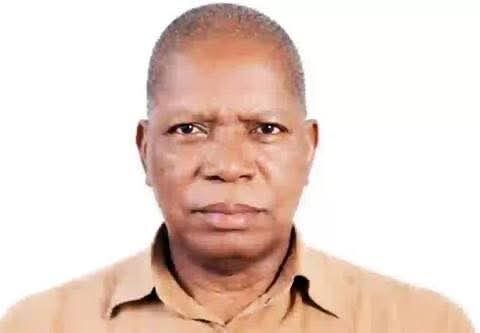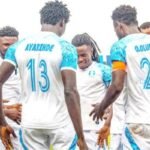President Tinubu and his squad have been observing their mid term. I would not exactly say they have been celebrating as they were reluctant to roll out the red carpets and call in the clowns of ceremony. Instead, the presidency has caused an elaborate avalanche of Power Point presentations and elaborate holographs of his achievements published in all major national newspapers and online platforms. His key officials, party hacks and sundry spokespersons have been crowing on what a pleasure road to paradise Nigerians have been travelling in the last two years.
In one outlandish and embarrassing outburst, Mr. Bayo Onanuga, Tinubu’s Mr. Squeler or poor imitation of Goebbels was quoted claiming that Tinubu’s great economic reform has started yielding fruits. Nigerians are now making tons of money producing and exporting Zobo, crude local herbal drink known and consumed by a minority of low class citizens in the northern fringes. I have never heard that Zobo ever had an export market or any market outside Nigeria. Beyond such outlandish and unsubstantiated adolescent claims, no one else in the administration has had the courage to conjure up any economic or social benefit of the great Tinubi economic transformation. But the mid term phantom festivities have progressed nonetheless since the administration needs to be seen marking a significant mile stone.
Elite economists and publicists in quest of substantiating data have instead resorted to international ratings by agencies like Fitch and the World Bank for projections on Nigeria’s economic prospects. Among local economists, silence is the norm. No one who respects his certificate dares make any pronouncements that sound like an endorsement of the Tinubu policy landscape. No one wants to be waylaid and flogged in the streets for bearing false witness. It is far better to remain silent and try to navigate one’s way around spiraling inflation and impossible living costs. Beyond a slew of sponsored articles and statistics fed from official quarters, no respectable medium dares paint a rosy picture of the tragic times in which we now live. In fact on the eve of Tinubu’s Mid term point, a few fair minded publications extended invitations to key officials of the administration to come face editors to present a score card of the administration’s mid term score card. The officials invited include the Governor of the Central Bank, the Minister of Finance and the Economy, the Chief Economic Adviser to the President etc. One week past the Mid Term point, hardly any of these administration “big men” has thought it safe or wise enough to face reporters or risk their fat necks on the guillotine of public scrutiny for fear of public opprobrium for what may turn out to be outright baseless lies. But the fake statistics and dubious claims have continued to fly around the public space.
Between the elaborate bogus claims and phantom statistics, ordinary Nigerians are somewhat perplexed. People are at a loss as to which country Tinubu’s propagandists are referring to. The statistics hardly accord with the general hollowness and desperation of the common man’s life. There is even more doubt as to whether the copious claims about achievements of the regime really refer to present day Nigeria or maybe some astral universe in which wishes have become realities.
Defying all manner of doubts about his commitment to real development, the President himself took an unusually bold and unfamiliar leap last weekend. Having gone ahead to award one of the largest infrastructure contracts in modern Nigerian history, the Lagos-Calabar highway, the President was determined to prove doubters wrong as to whether the project would be completed within his tenure. He has commissioned some 30 kilometers of the 785 km highway, a laughable less than 5% of the entire length of the project. This is one of the rare occasions when a Nigerian leader has commissioned a major national project in pieces and pieces!
Predictably, the usual coterie of clappers and cheer leaders were on hand to praise the President to high heavens. It is quite significant that the usual collection of government-bred Nigerian oligarchs of manufacturers, bankers, traders and wheeler dealers were on hand to witness the joke. The private sector was there in full since in any case these briefcase oligarchs are all creatures of government in its familiar buccaneer iteration. It is doubtful whether any of these industry and private entrepreneurs would commission a mere 5% of any project belonging to their organizations. To decorate the scenery with celebrity and lend it some presumptive credibility, Wole Soyinka was in attendance as an extension of his controversial serial endorsements of Tinubu’s presidency. In every way, the premature commissioning has taken place. But no one has yet said when the rest of this Alaska Highway would be completed.
Nor has anyone told us what is so strategic in the swampy stretch between the Lagos lagoon and the swamps of Calabar. This road is just the Nigerian equivalent of the infamous Alaskan highway, a showpiece shiny highway that literally leads from and to nowhere in economic terms. By its nature and motivation, the proverbial Alaskan Highway is a beautiful freeway with all modern amenities designed and built way before anyone has had time to figure out what purpose the highway is designed to be or who exactly it is meant to serve. The road exists. It matters little where it is coming from and where it is leading. Just build itand the traffic will come. People are always coming from somewhere and heading somewhere whether or not it makes sense. A road remains a road. As my friend Yemi Ogunbiyi says in the title of his memoir, “ the road never forgets.”
I am ignorant as to what trade takes place between Lagos and Calabar or what volume of cargo traffic passes through the projected route. I am not so sure where the highway will head next when it terminates in the creeks of Calabar. Nor am I sure that the heavy commercial traffic of cargo from Lagos to the South Eastern hinterland would prefer to travel to Calabar instead of straight to Onitsha, Owerri, Aba , Nnewi and Awka. That would seem to be the more natural route of cargo, passengers and trade. There is a more direct way of accessing these trading and cardo centres from Lagos. And it would probably cost much less to modernize and expand the existing Lagos-Benin-Onitsha-Owerri-Calabar highway than the trillions we are shelling out on this new phantom highway.
I was brought up to think that economically strategic roads are about the transportation of people, goods and services from where they are abundant to where they are most desired. Big roads make recovery revenue by charging tolls along heavy traffic routs in order to recover their costs and pay back these dubious loans. But on this project, silence is the answer. The pursuit of grandeur in and for itself seems to have become an end is in itself. Build it and they will come. I would not know what became of the Calabar Export Processing Zone and Tinapa tourist and retail heavens. I don’t know how much commercial traffic from Lagos goes to Calabar in search of these white elephant schemes.
Some citizens have defied these phantom second anniversary ceremonies and claims. Important questions are being asked about real life conditions under Mr. Tinubu’s two horrible years. Anno horribilis would be Queen Elizabeth II’s characterization of such years in British life as were witnessed during the Covid-19 years. Tinubu’s holocaust is worse because it is not the result of an unintended happening. Tinubu’s economic holocaust on Nigerians is not an act of nature or an accident of history. It is intentional blunder born out of pathetic ignorance of public policy and economic engineering. We are dealing with a deliberately foisted human tragedy of epic proportions. Through a largely thoughtless policy gamble, an entire nation has been hurled into unnecessary calamity. Energy prices have been raised. Money can hardly buy anything. The poverty population has overtaken the rest of the populace. Everything that makes life worth living is now priced beyond the reach of the many.
If indeed Tinubu’s gambit were in aid of a so- called reform of the economy and society, it would be understandable. No one can see the economic blueprint and destination let alone fathom the social objectives of the Tinubu government. We all know the Buhari wilderness where Tinubu met us. We know what the pump price of gasoline was when he came. We know for how much the dollar exchanged as Buhari headed for the exit. We can recall the cost of a return economy ticket to London then. We know what we used to pay for electricity or cooking gas. Essential drugs used to be affordable to many.
Now, most Nigerians burdened with the yoke of Tinubu’s indirection are yearning to be returned to the worst of Buhari’s days than to be left in the wilderness of this rudderless and strange paradise with no compass. Tinubu dropped by on his inauguration date and casually dropped the bombshell that “fuel subsidy is gone”. Other thoughtless reflexes followed in a stream. But two years down the road, no one has told us where the economic policy is leading. No one has defined the economic or social destination. When a multitude of over 200 million citizens are being led on empty stomach to a journey without a defined destination, to trudge on and follow is a bit foolish. To hope, following something called “renewed hope agenda” is an even more tragic folly. Hope cooks no food. Hope is no destination for those who love life nor is it a plan of action. Hope without direction or definable targets is a chimera, a never never land that ends in an abyss of catastrophe.
Predictably, there is a narrative that has been rehashing the achievements of the Tinubu presidency. It depends on where you are standing to watch this rough masquerade. If you are within the precincts of Aso Villa or the many feeding points of government patronage in Abuja and all over the country, you are likely to see and hear the claims of grand achievements by the government propaganda apparatus. The uniting message of the “renewed hope agenda” is that Nigerians should believe in Tinubu’s political sagacity and leadership track record as bases of hope in the future of the country. But people are very hungry and desperate. Many are insecure even inside their own homes. A nation that thrives on hope and belief is now being asked to believe some more and have faith in the power of the unknown. The faith that has kept us this far has not brought us anywhere near the gates of paradise!
A four year presidential tenure is a tricky time frame in the political calendar of any such democratic nation, the first two years are for setting an agenda and activating it in the form of actionable programmes, policies and projects to give the administration an identity and direction. The third year is a dress rehearsal for the politics of re-election as the ongoing agenda rolls on. Tinubu has wasted two valuable years and is entering the third year in active preparation for the politics of a possible re-election in 2027. The populace can hardly see what the administration has achieved in two years to qualify for consideration for re-election. This is Tinubu’s political conundrum and albatross. How to account for lost time and justify yet another campaign for tenure extension: that is Tinubu’s political burden.
Incidentally, the remaining two years of Tinubu’s tenure is not time reserved for him and his party alone to bestride and stro;; around in the political space. It is time and space only for him to share with an aggressive opposition coalition. Tinubu knows the gathering opposition and they know him well. His record is abysmal, thus arming the opposition with tools to do him grave harm. The opposition has confessed that they share severe hunger with the majority of Nigerians. A “hungry” political opposition is not the easiest opponent in a duel.
Tinubu’s political future beyond this first term is a puzzle wrapped in curiosity and dressed in Nigerian uncertainty. The great question remains this: can the leader of a failed government and an unpopular party defy political gravity and win re-election?
Follow us on all social media platforms @dailyquery for news and analyses around the globe.



























